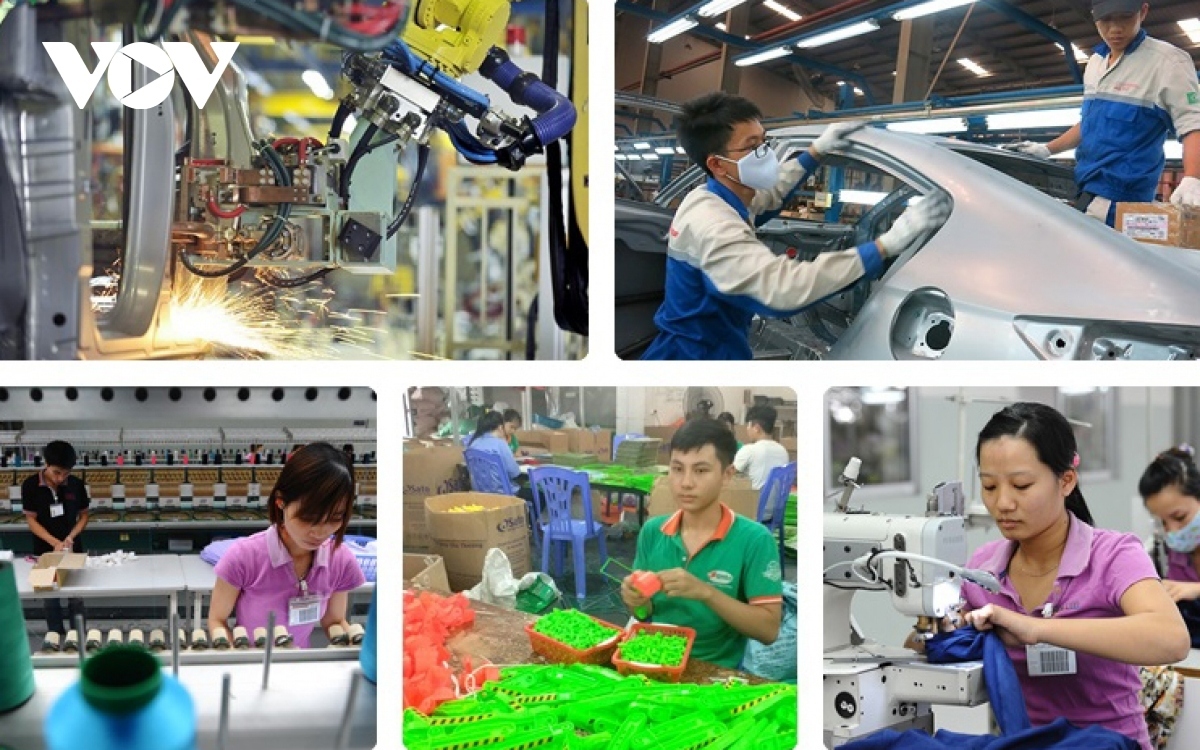Vietnam highlighted as global economic bright spot for 2023 and beyond
VOV.VN - Despite growth rates slowing down, the nation is still growing at a high rate, projected to be at 5.8% this year before reaching 6.9% in 2024, according to Daniel Leigh, head of the World Economic Studies division in the IMF's Research Department which produces the World Economic Outlook.
Leigh is one of the authors of this year's World Economic Outlook Report detailing the global economic situation and the Vietnamese economy following a period of complicated developments internationally over recent years.
He assessed that the world economy is still recovering from the COVID-19 pandemic and the conflict in Ukraine. While the recovery was strong at the start of the year, the world continued to endure turmoil in the banking sector in both the United States and Switzerland.
These factors pose many risks to the world economic outlook. As a result, he has forecasted economic growth will slow dropping from 3.4% in 2022 to 2.8% in 2023, before gradually recovering to 3%.
This is a challenging time and one of the main issues is that inflation remains high.
Central banks are trying to raise interest rates in a bid to curb inflation, causing economic growth to slow down.
Assessing Vietnam and most other Asian nations, Leigh said that these represent the bright spots of the world economy this year as the region is developing relatively fast compared to the rest of the world. Of these, the Chinese economy is growing at a range of 3% to 5.2%, India is at around 6%, whilst Vietnam is growing at about 8%.
Inflation in the region is also much lower compared to the rest of the world, while central banks in the region are tightening the monetary policy to bring inflation back to the set target.
According to the IMF expert, amid most economies slowing down, Asia, especially emerging markets, are growing quite fast.
This partly reflects China's recovery, whilst India serves as a typical example, growing at around 6%, much faster than other emerging markets and developing economies.
Another notable point Leigh mentioned is that in developed economies the labour market is still lacking in human resources. In the US, although the unemployment rate stands at only 3.5%, the economic outlook remains bleak.
Talking about how Southeast Asia and Vietnam will contribute to the global economic growth in the year ahead and over the next five years, Leigh said that for Vietnam, a growth rate of about 8% in 2022 would be a bright spot in the region.
The IMF has moved to adjust its growth forecast for Vietnam in a direction better than previous expectations. This is partly due to the post-COVID recovery and trade diversion.
Some investment is therefore moving to the Vietnamese market, with this being a good incentive.
Inflation in the nation is relatively low, 3.15% in 2022 and rising, in part due to a dynamic economy, although the IMF thinks inflation will return to its target level, at around 4.3% by 2024.
The expert has made some recommendations for Vietnam to continue to grow strongly over the remaining quarters of this year and in the next five years, which is that monetary policy should continue to focus on reducing inflation to a level that is reasonable. If this happens, then the fiscal policy should continue to target vulnerable households.
Regarding financial stability, the country should prioritise supporting the stabilisation of the real estate market and corporate bond market with specific tools, although this should not distract from the overall policy towards the goal of keeping inflation in check in a stable manner.
Over the next five years, Leigh expects the global economy to gradually recover from the lows seen this year, returning to an interest rate of about 3%; 3.2%; 3.1%, and then 3% in the medium term.
The global economy is still recovering, although not as strongly. Several factors such as geopolitical fragmentation have restricted foreign direct investment in some countries.
Another hindering factor is rising trade barriers. The IMF therefore hopes for more reforms to encourage supply, labour force participation to fill the shortage of manpower, as well as an increase in education and training to improve quality and labour productivity as a contribution to faster economic growth.
He stressed that the most important thing is to improve co-operation between countries to limit the negative impact of fragmentation caused by trade reform.

